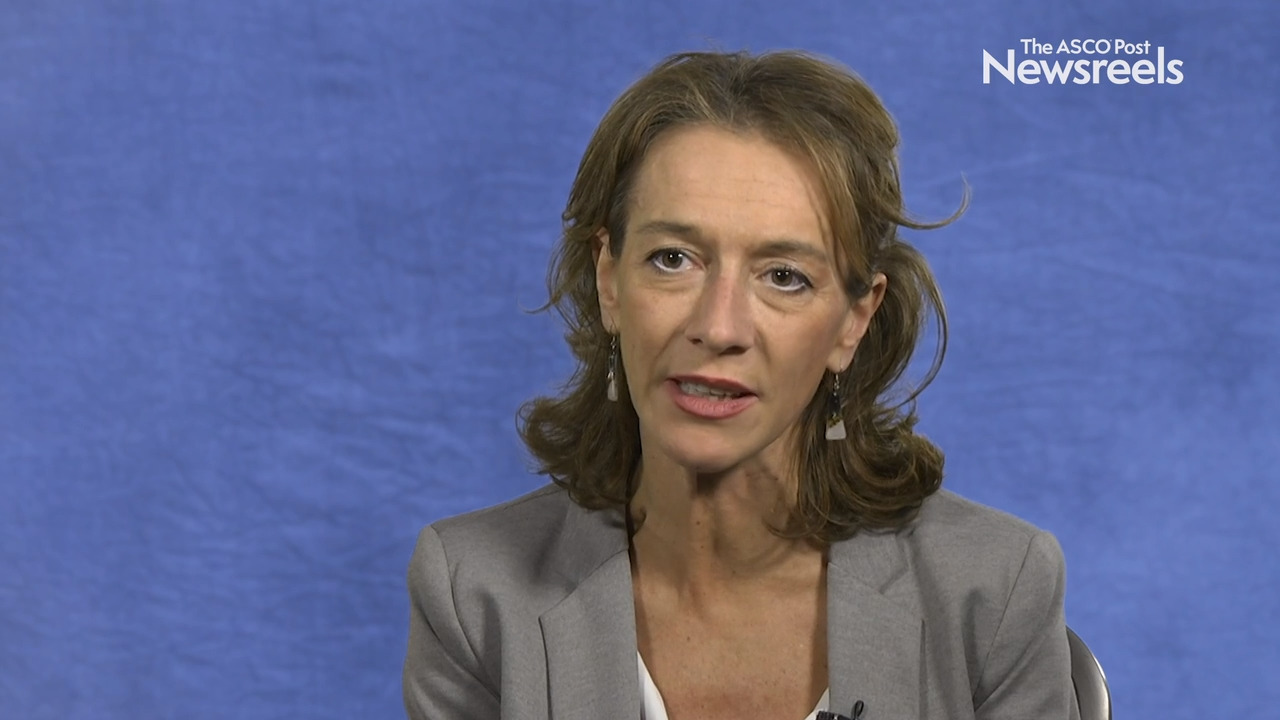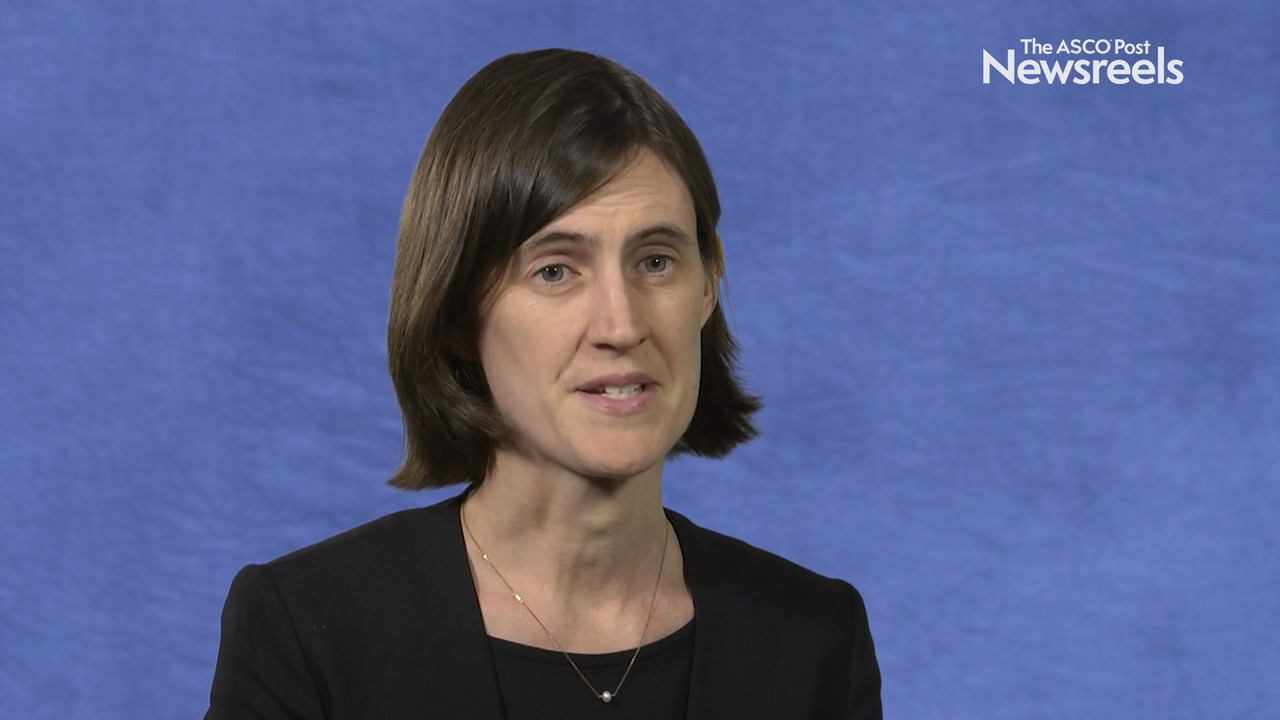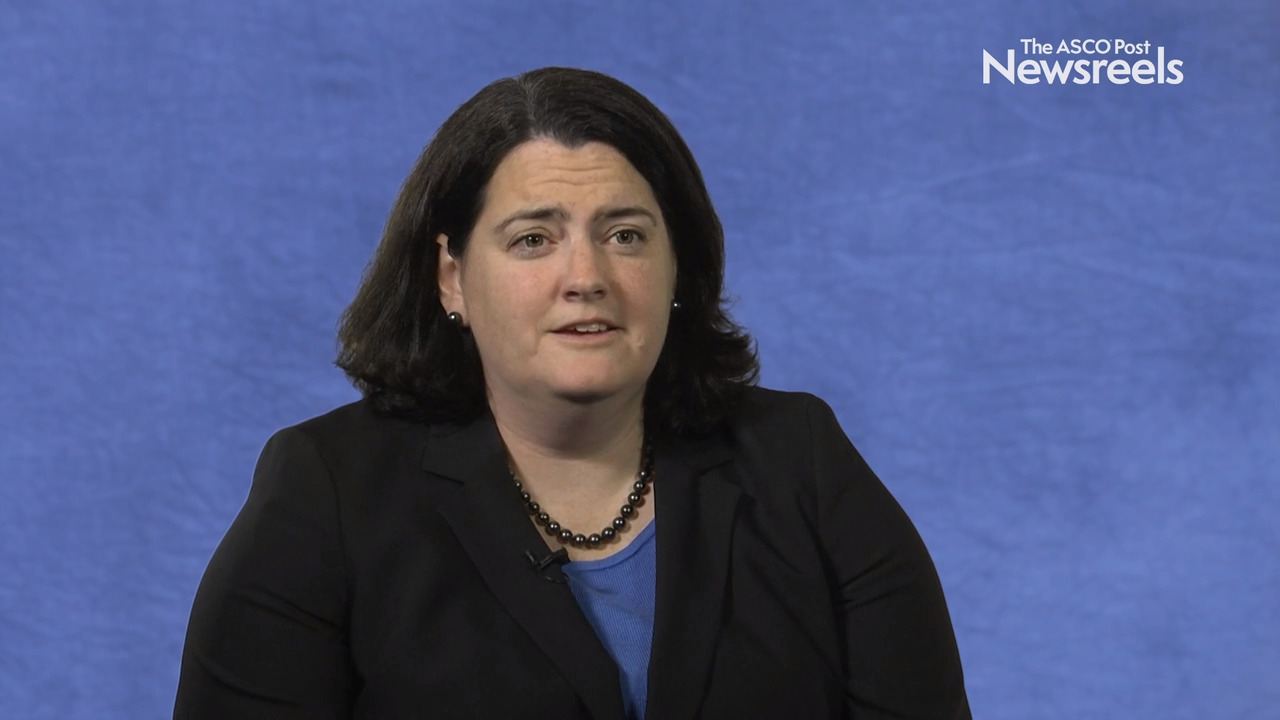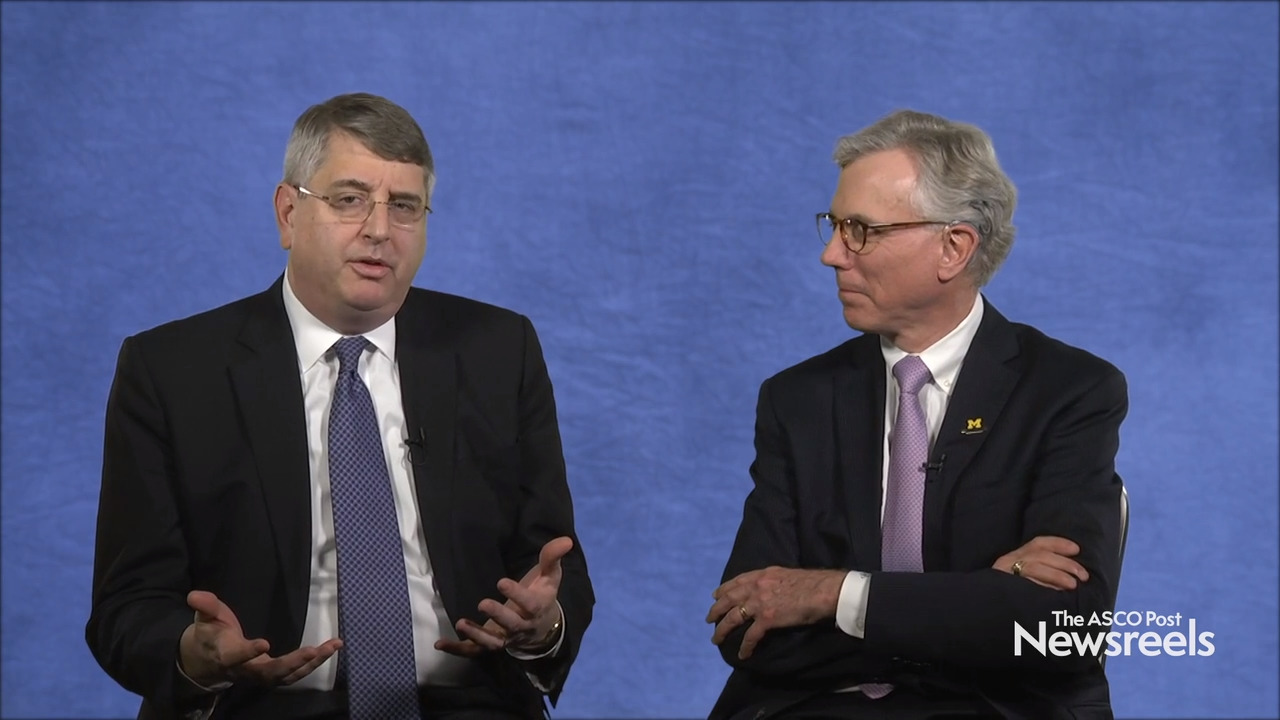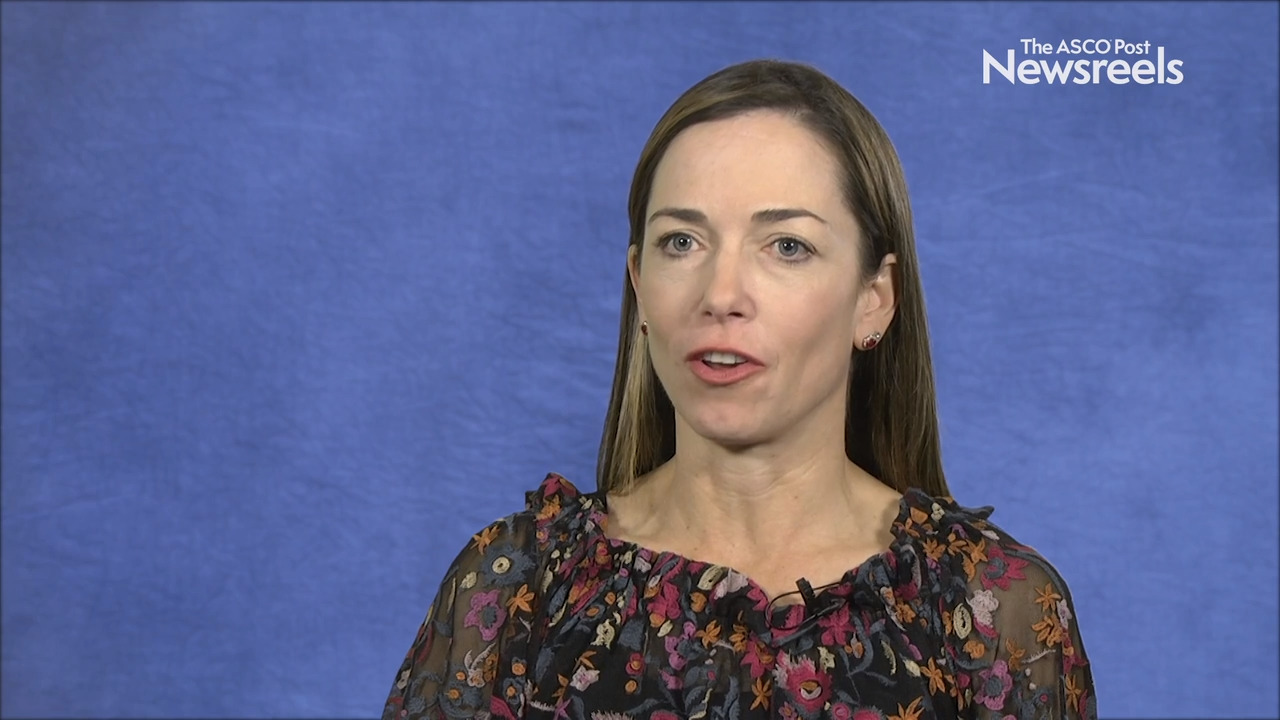Hope S. Rugo, MD, on Metastatic Breast Cancer: Treatment for Pretreated Hormone Receptor–Positive Disease
2018 San Antonio Breast Cancer Symposium
Hope S. Rugo, MD, of the University of California, San Francisco, discusses how treatment with a lower dose of palbociclib (100 mg vs 125 mg) in combination with fulvestrant or tamoxifen is associated with a lower rate of high-grade neutropenia (Abstract PD2-12).
Eva M. Ciruelos, MD, PhD, of the University Hospital 12 de Octubre and the SOLTI Group, discusses study findings on palbociclib and trastuzumab in postmenopausal patients with HER2-positive metastatic breast cancer (Abstract PD3-03).
Roisin M. Connolly, MD, of the Sidney Kimmel Comprehensive Cancer Center at Johns Hopkins, discusses clinical trials during the past year on studies on CDK and PI3K inhibitors in estrogen receptor–positive breast cancer and immune checkpoint agents in triple-negative breast cancer.
Laura S. Dominici, MD, of the Dana-Farber Cancer Institute, discusses the lower quality-of-life scores seen after unilateral or bilateral mastectomy compared with breast-conserving surgery in women younger than age 40 who are treated for breast cancer (Abstract GS6-05).
Harold J. Burstein, MD, PhD, of the Dana-Farber Cancer Institute, and Daniel F. Hayes, MD, of the University of Michigan Rogel Cancer Center debate whether all women with breast cancer and positive lymph nodes should receive chemotherapy.
Sara A. Hurvitz, MD, of the University of California, Los Angeles, discusses the natural history and novel combinations for HER2-positive disease as well as predictive and prognostic markers for this type of breast cancer.
